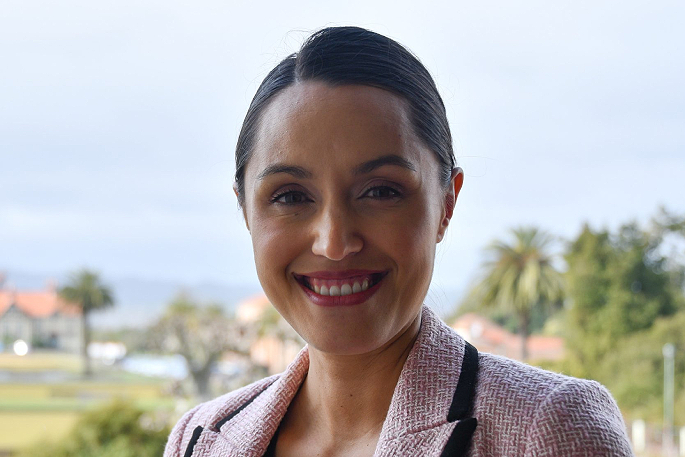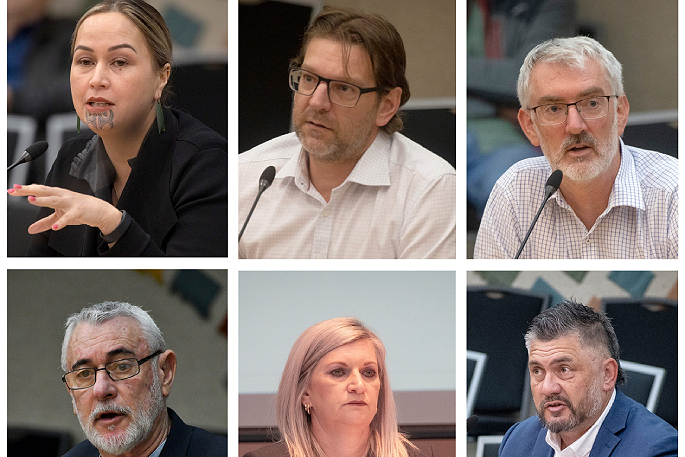Rotorua council is axing its six deputy chief executive roles - ending the controversial leadership structure that sparked a nationwide debate two years ago.
Rotorua Lakes Council mayor Tania Tapsell told Local Democracy Reporting changes are being made to align with council and committee priorities.
It's reverting instead to a group manager format.
She says the change is a result of “strong feedback” in the Annual Plan process from members of the public wanting a structural “refresh”, and the direction from elected members for the chief executive to find cost efficiencies, she says.
There would be two group managers - one for each of the committees: the Community and District Development Committee and the Infrastructure and Environment Committee. A third would focus on council services.
They will be joined by two executive directors, one responsible for the Te Arawa partnership and the other responsible for governance, corporate planning, engagement and marketing and communications.
Tapsell says the role of community wellbeing deputy chief executive will be consolidated among the managers.
“There will no longer be deputy chief executives.”
She was unable to confirm any financial savings or implications that will result from the change but will instead provide this once the process is finished by August 28.
She says council staff have been informed of the restructuring.
There were initially seven deputy roles. When they were announced in 2021, organisational enablement deputy chief executive Thomas Collé said five of the seven deputy chief executives were paid between $210,760 and $302,968 and two were paid between $196,481 and $282,441.
Rotorua MP Todd McClay and former mayor Grahame Hall called for an independent review of the decision, as did then-councillor Peter Bentley.
Bentley expressed his opinion that the national news of the seven deputy chief executive roles was “an embarrassment” for Rotorua.
Craig Tiriana was chief executive’s office deputy chief executive until November last year when he resigned, and the role was not filled. It was disestablished this year during the Annual Plan process, removing $200,000 from the 2023/24 budget.
The remaining roles were held by Te Arawa partnership DCE Gina Rangi, organisational enablement DCE Thomas Colle, district development DCE Jean-Paul Gaston, infrastructure and environmental solutions DCE Stavros Michael, district leadership and democracy DCE Oonagh Hopkins and community wellbeing DCE Anaru Pewhairangi.
In response to criticism at the 2021 restructuring announcement, then-mayor Steve Chadwick said people were entitled to their views but the council had needed to change to find new ways of delivering the outcomes the community needed.
Before then, there were five group managers and one chief executive’s office manager.
Tapsell says the new council wants to ensure the organisation is aligned to deliver the new council priorities but also what the community wants too.
She says the new council comes in on a “mandate of change” and it listens to community concerns.
 Rotorua mayor Tania Tapsell confirmed the restructure on Friday morning. Photo / Laura Smith.
Rotorua mayor Tania Tapsell confirmed the restructure on Friday morning. Photo / Laura Smith.
The council’s management structure was a topic during last year’s local government elections.
When she was campaigning to be mayor, Tapsell told Local Democracy Reporting she would lead a review and refresh of council operations.
When asked if this included the council’s seven deputy chief executive roles, she said it's important to look at what would be put in place if they were removed, but she would “certainly be looking at it” if the review found they were not necessary.
Local Democracy Reporting on Friday asked chief executive Geoff Williams for a sit-down interview about the restructure. He declined but says he will be happy to once the internal process is complete.
He instead provided a statement that explains the council has an opportunity with a new council and new priorities for a refresh, and the restructure is a continuation of “ongoing efficiencies” it's tasked with finding.
“An internal change process is underway to ensure we continue to have an efficient and cost-effective structure to support the effective delivery of services, work programmes and projects that align with this council’s direction and priorities.”
There would be further work to make sure the organisation aligned with this new executive structure, he said.
“As the process is still under way, it’s not appropriate to comment further at this stage but we will be happy to share the outcome once the process is complete.”
He was also asked about expected cost savings, what the restructure would cost and what influence community criticism of the structure had on the restructure.
Public Interest Journalism funded through NZ On Air.




1 comment
Wish
Posted on 21-08-2023 14:45 | By Kancho
I wish Tauranga city look at the bureaucracy too . Seems councils have increased staff but no accountability to anyone. Performance reviews or any measure of efficiency seems to not happen or certainly no transparency obvious.
Leave a Comment
You must be logged in to make a comment.